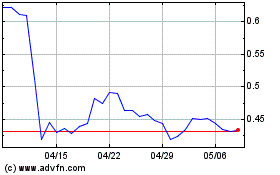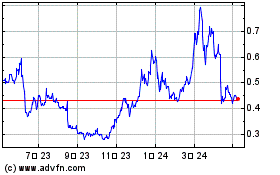Nigeria’s Federal Executive Council Approves Blockchain Policy
2023年5月5日 - 12:00AM
NEWSBTC
The Nigerian government has just approved a blockchain policy that
will facilitate the development of a regulatory framework for the
technology. The approval occurred in a May 3 Federal Executive
Council meeting. Blockchain Adoption Could Impact The
Economy Positively Notably, the Minister of Communications and
Digital Economy, Professor Isa Ali Ibrahim, had presented a memo
about the regulatory framework earlier. While announcing the
approval, the FMCDE cited a PricewaterhouseCoopers (PwC) report
predicting the increasing blockchain adoption and how it will boost
the global gross domestic product by 2030. It noted that the global
GDP could gain an additional $1.76 trillion from various industries
representing about 1.4% of the world’s GDP. Related Reading: AVAX
Smart Contracts Hit 6-Month High – What This Means For Its Price In
October 2020, the country released a draft of the blockchain
adoption strategy. The document mentioned decentralized ledger and
blockchain technology would support the growth of the Nigerian
digital economy. The FMCDE developed the national policy by
consulting stakeholders in the private and public sectors. The
creation of the policy conforms to the seventh pillar of the
national digital economy policy and strategy, with the major focus
of the policy being on growing global innovative technologies and
digital society. Importance Of The New National Policy The
main purpose of the new policy is to create a
blockchain-based economy suitable for digital activities in the
country. It will ensure secure transactions, value exchange, and
data sharing among individuals, companies, and the government.
Also, the policy will impact the public and private sectors in the
country positively. Blockchain adoption strategy in Nigeria cuts
across several pathways and initiatives. These include the
establishment of a consortium for blockchain, fostering digital
identity, and developing a national blockchain sandbox for piloting
and testing. Related Reading: Top 5 Cryptos To Watch This Week Amid
US Banking Crisis Also, the strategy will involve the creation of
blockchain business incentive programs, advancing digital awareness
and literacy of blockchain technology, and building a robust
regulatory and legal framework. While FMCDE will supervise the
policy initiatives, the coordinating responsibility lies on the
National Information Technology Development Agency (NITDA). A
multisectoral committee has also been created to oversee policy
implementation. Further, several regulatory bodies will be putting
in some regulatory regimes for implementing blockchain technology
in many sectors of the economy. The Federal Executive Council
appointed some bodies, such as the Central Bank of Nigeria, NITDA,
the Securities and Exchange Commission, the Nigerian Communications
Commission, and the National Universities Commission for using
blockchain technology in different sectors for the betterment of
the economy. Featured image/Pexels and chart/Tradingview
Sandbox (COIN:SANDUSD)
過去 株価チャート
から 3 2024 まで 4 2024

Sandbox (COIN:SANDUSD)
過去 株価チャート
から 4 2023 まで 4 2024
